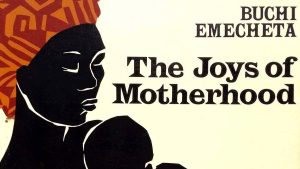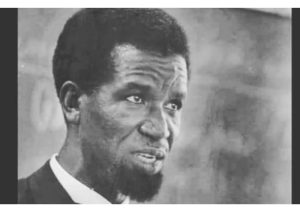Prominent Nigerian writer Ben Okri‘s combination of magical realism, African mythology, and deep philosophical ideas has enthralled people all over the Often regarded as one of the best African authors of his time, Okri’s books of essays, poetry, and novels probe issues of identity, spirituality, and the complexity of the human experience. Ben Okri is a vital person in modern literature as his work presents a different and provocative view of African life and culture for younger readers.
Who Is Ben Okri?
Ben Okri, born in Minna, Nigeria, on March 15, 1959, grew up in both Nigeria and London, circumstances that greatly shaped his work. Early in life, he started his writing career releasing his first book, Flowers and Shadows, when he was only twenty-one. Early work was well-received, but it was his third book, The Famished Road (1991), that shot him to global recognition.
Many people connect Okri’s work with magical realism, a literary movement combining mystical or fanciful ideas with the actual world. But his work is firmly anchored in African customs and mythology, and he often employs magical realism to investigate the spiritual and metaphysical aspects of postcolonial existence. Rich in symbolism and metaphor, Okri’s works challenge readers to see deeper truths about the world they live in and themselves. Beyond appearances.
The Famished Road: A Journey Through the Spirit World
Unquestionably Ben Okri’s most well-known work, the Famished Road is still among the most revered books in African literature. First book in a trilogy including Songs of Enchantment (1993) and Infinite Riches (1998), the book, which received the esteemed Booker Prize in 1991, These books taken together provide a deep and sophisticated story that investigates the limits separating the physical and spiritual realms.
Between the realm of the living and the world of spirits, Azaro, a spirit child—also known as abiku—forms the central focus of The Famished Road. Abiku are children born only to die again in Yoruba mythology, which causes pain to their parents as they negotiate life and death. But Azaro chooses to stop this cycle and stay in the realm of the living, a choice that prepares him for his path across a magnificent but profoundly disturbed planet.
The World of Azaro: A Blend of Reality and Magic
In Azaro’s universe, the lines separating magic from reality are always changing. Azaro’s story is full of experiences with supernatural entities, glimpses of the past and future, and times of great insight; as a spirit kid he has the power to perceive and communicate with spirits. These components of magical realism are not just ornamental; they are essential for the way the book examines ideas such identity, fate, and the nature of reality.
By means of Azaro’s eyes, Okri vividly depicts life in a Nigerian hamlet, thereby portraying the hardships, aspirations, and ambitions of its people. Set against the background of a nation undergoing political corruption, social instability, and colonial legacy, the book Nevertheless, Azaro’s reality reminds us of the resiliency of the human spirit as even the hard facts of existence inspire constant wonder and possibilities.
For younger readers, The Famished Road offers a different reading experience that questions accepted wisdom. Drawing on African oral traditions and folklore to build a tapestry of tales within stories, Okri’s rich and lyrical storytelling style The book asks readers to see the world through Azaro’s eyes, one in which every moment has value and the ordinary and the remarkable coexist.
Themes of Identity, Destiny, and Transformation
The concept of identity and the fight to identify oneself in a society that is always changing is one of the main subjects of The Famished Road. Azaro’s path is a spiritual and existential one as much as a physical one to help him to define who he is and where he belongs. Being a spirit kid, he is stuck between two worlds; his experiences mirror the larger conflicts between tradition and modernism, the individual and the community, and the seen and invisible facets of existence.
The book also looks at the idea of fate and the decisions we choose to help to define our life. Azaro defies his predestined destiny as an abiku by choosing to remain in the realm of the living; this act of free will shapes the tone of the whole book. Azaro faces obstacles and temptations that try his will throughout the narrative; his path becomes a metaphor for the fight to live really in a society that sometimes defines us by outside influences.
Another major topic in the book, both literally and metaphorically is transformation. In the always shifting universe of The Famished Road, individuals, locations, and even time itself are vulnerable to change. As Nigeria considers its postcolonial identity, this topic captures the larger social and political changes occurring in the nation at the time. As Azaro works to negotiate the complexity of his dual life and find his place in the world, the process of change is both agonizing and essential.

The Legacy of The Famished Road
The Famished Road has been praised as a masterwork of contemporary literature since its release and Ben Okri has become among the best authors of his age. The way the book combines African mythology, magical realism, and social critique has inspired many authors and still enthralls readers of all ages.
The Famished Road invites young people to discover the richness of African culture and the complexity of the human experience, therefore transcending mere narrative. Writing by Okri forces readers to consider the world they live in closely, question the nature of reality, and welcome the opportunities for imagination and creativity.
Conclusion: Why Ben Okri and The Famished Road Matter
Ben Okri’s The Famished Road is a book that resists simple classification. It is a commentary on the social and political reality of postcolonial Africa, a work of magical realism—a philosophical inquiry of identity and destiny—and a meditation on Young readers will find the book to be a rich and satisfying experience full of vivid images, great insights, and close connection to African culture and mythology.
When exposing Ben Okri to the new generation, we are opening a universe of imagination, creativity, and possibilities rather than just passing down a legacy. The Famished Road exhorts readers to see beyond appearances, embrace the secrets of life, and find purpose in the path of self-discovery. Okri is a writer whose impact will be felt for next generations as his works are evidence of the ability of writing to inspire, question, and change.
Please read all our stories on African Literature here




